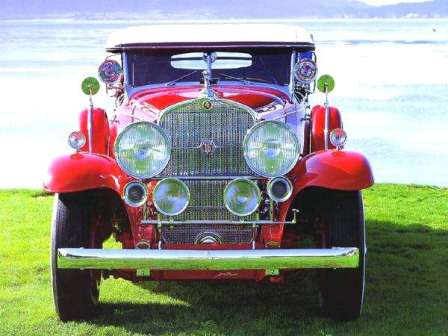"Cadillac Employee Pricing" Huh?
My time writing for TTAC is strictly limited. Farago asked me to pinch hit while he's otherwise engaged. As soon as this site's founder returns from his light bulb changing duties, I'm going back to my regular, better-paying job. So while I've got the floor, I'd just like to share a revelation…. I heard a radio ad today for "Cadillac employee pricing." Prior to that moment, I hadn't really given much thought to the concept of Caddy opting-in to GM's overall firesale. Not until the pitchman assured me "you pay what Cadillac employees pay." And then it hit me. Why would a Cadillac buyer want to buy a car that the people who build them can buy? I mean, if a Cadillac employee can afford a Cadillac, where's the status in that? At the risk of having my foul-mouth censored yet again, that brand is so screwed. Upmarket my ass. And why in God's name do they have to tell everyone about it?
More by Jehovah Johnson


































Comments
Join the conversation
To Chrishaak I know the CTS at employee priceing seems like a good deal but as the former owner of Many Cadillacs the last three being STs's I gotta tell you Cadillac priceing is too high to begin with and the proof is a few years from now your CTs won't be worth 50 percent of what you paid for it after the discounts. I experienced this with all my Cadillacs and softened the blow somewhat by takeing advantage of discounts when they had then combined with subvented leases. My last Seville MSRP Was 55 thousand and after three years of light use by the wife with 22 thousand miles on it the car was only worth around 21 thousand dollars. This is why they cried uncle and fled from leasing. The product just depreciates like a pair of used shoes. My wife present car is a lexus and It has been the best car we have ever owned, and we have bought around 30 new vehicles between my wife and my self. The best part is the car is still worth about 75 percent of new after three years. Oh and my main reason for leaving cadillac was the continuous problems we had with all of them. every two to three months something went wrong. Window regulator failure, water leaks, heated seat problems , tie rod end failure. steering rack noise, oil consumption, water in the headlamps and taillamps, traction control light comeing on and off, wind noise, mirror vibration, brake rotor warping and on and on and on...............
@Vetteman: The silver lining is one can normally pick up a slightly used Caddy for significantly less than the original MSRP. Let that original owner take the depreciation hit. Some call it cheap; I call it savvy. I'd never buy another car new, but I'm seriously considering an '08 CTS when the prices come down - which is looking to be sooner rather than later!
@Vetteman: I seriously doubt that any three year old Lexus -- even with extraordinarily low mileage -- is worth 75% of MSRP.
What's really incredible is how blythely GM tossed away Alfred P. Sloan's effective model of individual division autonomy. For decades, each GM division had their own engines and bodies which gave them each a distinct market. Even when the early seventies' compact Chevrolet Nova platform was passed around to all divisions (except Cadillac), at least each version (Buick Apollo, Olds Omega, and Pontiac Ventura) had their own specific engine lineup. That all went out the door when Roger Smith arrived in 1980. In what was an unbelievable cost-cutting move, every division was suddenly producing cars that, for all intents and purposes, were exactly the same as the other divisions' cars. The only thing to differentiate Smith's 1982 J-cars (Cavalier, Firenza, Skyhawk, J2000) were some minor grille and trim pieces. The Cadillac Cimarron was the pinnacle (or depth, depending on your perspective) of this disasterous move. It eventually killed the Plymouth and Oldsmobile marques, and it only remains to be seen if Mercury follows suit. It will likely go down in history as one of the worst business decisions ever made and could very well be the one that ultimately dooms and puts GM (and the rest of the domestic auto industry, for that matter) out of business.